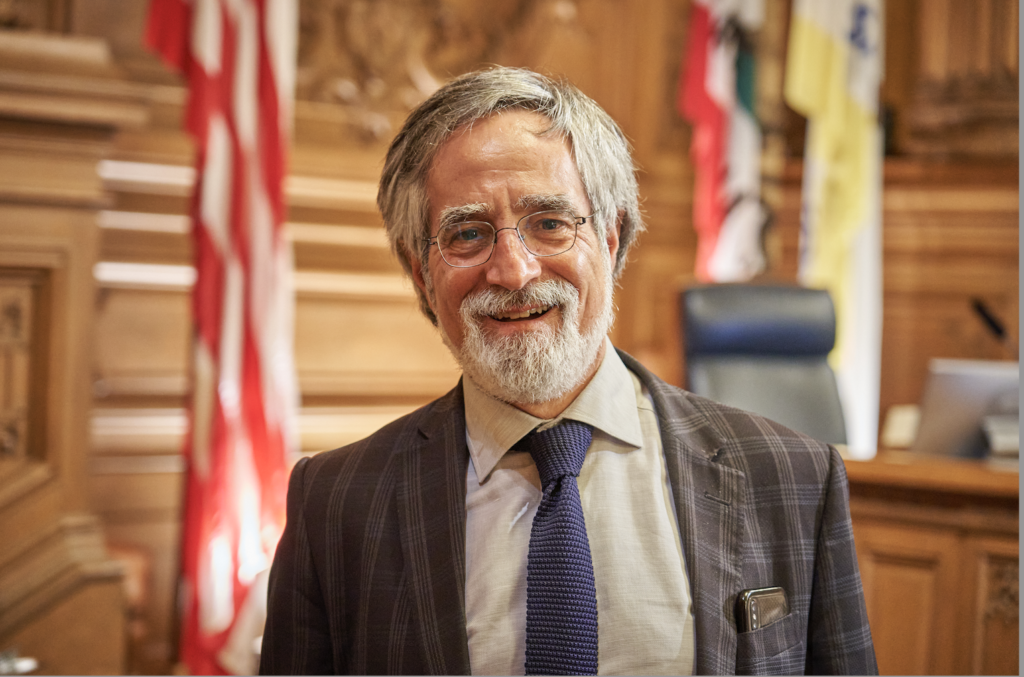The entire Board of Supes is furious at the Breed Administration’s failure to address the problem of the tech-driven scooter companies allowing their riders to terrify and at times seriously injure pedestrians on the city’s sidewalks.
Some supes are calling for the city to shut down all of the scooters until the companies, which have hundreds of millions in venture capital money, install the existing software that would disable the devices if they go on the sidewalk or into a public park.

There are lives at risk here: The number of fatalities from scooter accidents has tripled, and collision have risen 58 percent in the past year.
There’s also a much larger issue: This is yet another glaring example of how the Mayor’s Office under Breed and former Mayor Ed Lee shrugged off any concerns and gave tech companies the ability to operate in the city with little in the way of rules or oversight.
This city has demonstrated repeatedly in the past decade that it’s unable to resist the lure of high tech—and that it is unable to plan in advance to regulate companies that can disrupt people’s lives and create chaos in the name of high-flying stock valuations and speculative profit.
Lime, one of the leading companies, is funded by Uber (which also made millions violating city law while Mayor Lee ignored the violations) and the Abu Dhabi Growth Fund.
That’s who profits from the scooters and the city’s lack or effective regulations. It’s a story we’ve seen over and over, and there are no signs that under this tech-friendly mayor it’s going away.
At a board meeting Tuesday, Sup. Aaron Peskin said that the scooter are running rampant on the sidewalks, and the administration is letting it happen.
He singled out the mayor’s director of the Municipal Transportation Agency, Jeffrey Tumlin, saying that “the SFMTA is not stepping up, and it starts with Mr. Tumlin himself.”
Tumlin, Peskin said, insists that the scooters are a “first-mile-last-mile solution but he doesn’t seem to care that it’s mostly a joyride for tourists who are freaking out our residents. The response I get from Mr. Tumlin is that we need more bike lanes. Damn right we need more bike lanes. But right now, we need the scooters off the sidewalks.”
This isn’t all that difficult: The companies have the ability to put in what’s called geo-fencing software, which turns the devices off when they leave the legal areas of city streets.
That already happens in other cities. Sup. Shamann Walton said that he was in Atlanta last weekend for the 49ers game, and he (for the first time) rode one of the scooters. When he got to Centennial Park, the scooter cut off, he said, and he had to park it at a transit center across the street from the stadium.
“That is the technology they have,” Peskin said. “They can do it here, but they don’t, because it’s not part of their buinsess model.”
Walton asked Joel Ramos, the local government affairs manager for the SFMTA, why the scooter companies aren’t using that technology to keep riders off the sidewalk. Ramos said we “have asked them to employ it … within the current permit structure.”
Walton: “Why are we asking and not demanding?”
Ramos: “There are terms of the contract we are trying to respect.”
And there you get the essence of the fundamental problem of how the executive leadership of San Francisco deals with new technology. Give the companies permission now, and worry about the impact later.
The existing permits don’t require the companies to keep scooters off the sidewalks; oh well, that’s the deal the MTA cut, so the peds need to be ready to get out of the way.
Sup. Ahsha Safai, who is one of the more conservative board members, joined the resolution calling on the MTA to either mandate geofencing or shut the scooters down.
“I came within an inch of getting runover” on Geary, he said, by someone riding a scooter at 20 miles an hour on the sidewalk.
I hope he, and the rest of the supes, realize how this happened and what the lessons are for the next Big Tech Thing.







